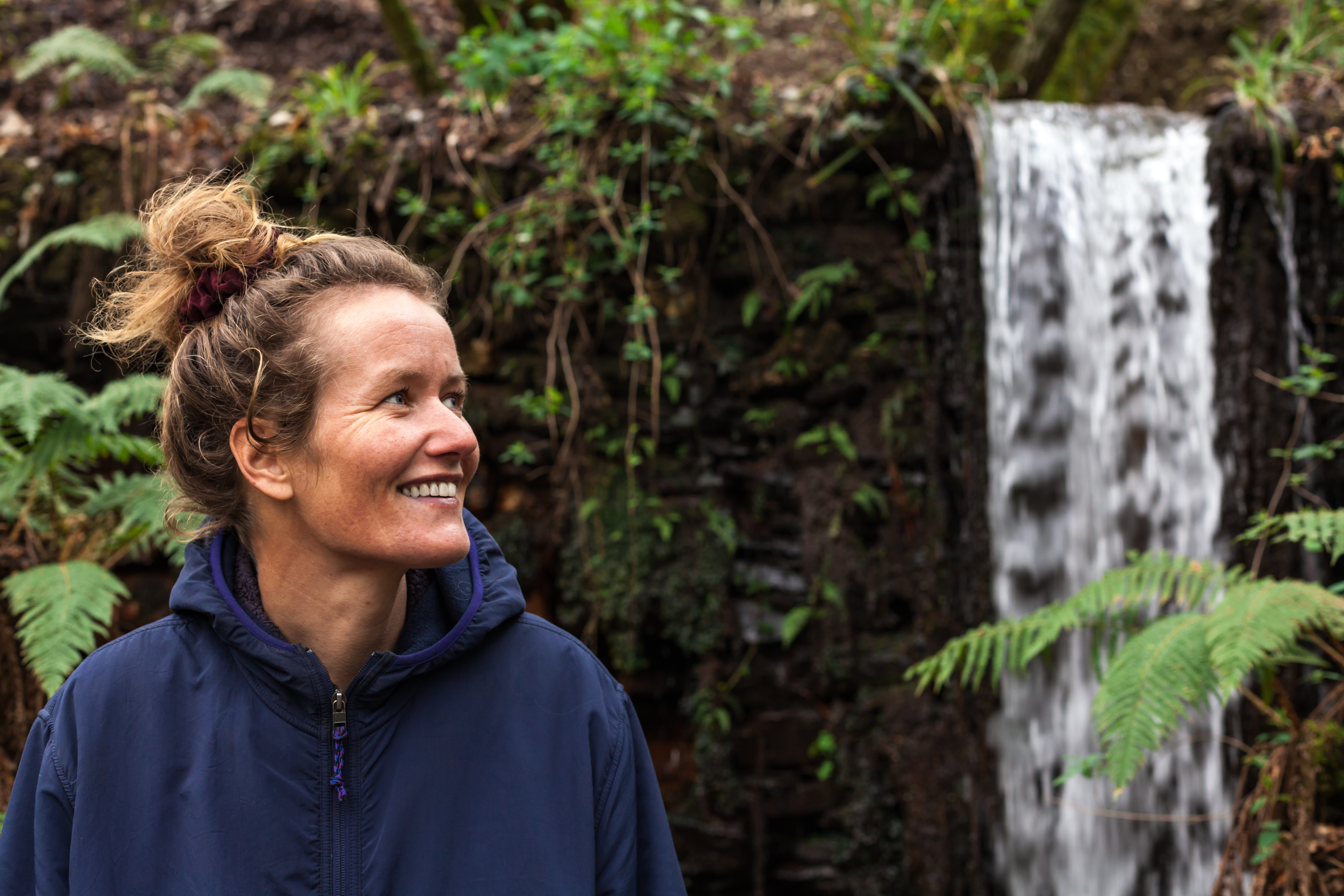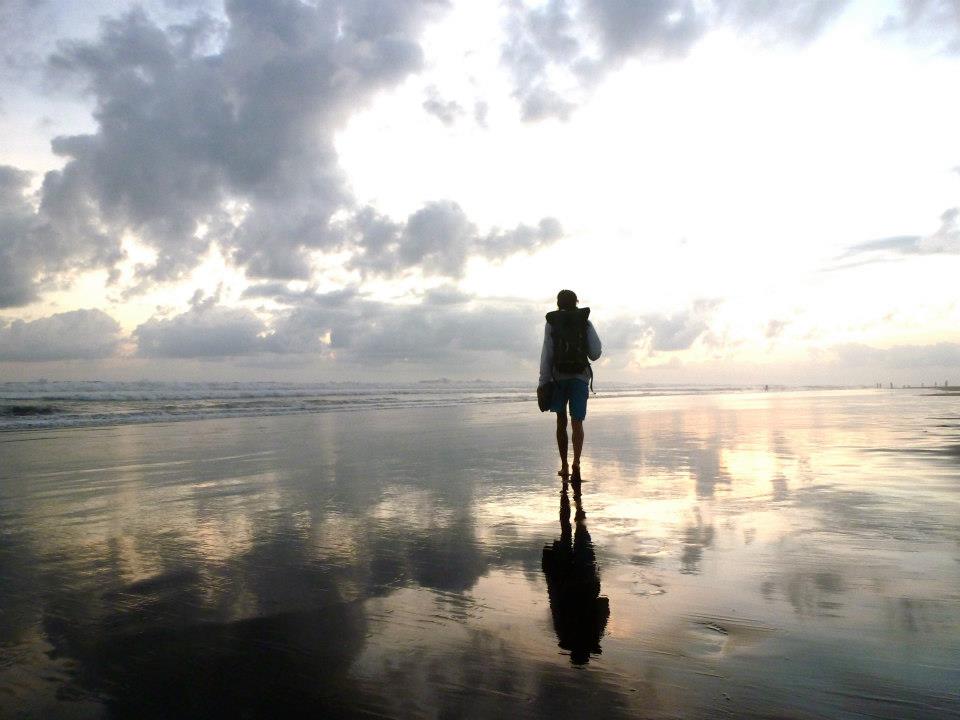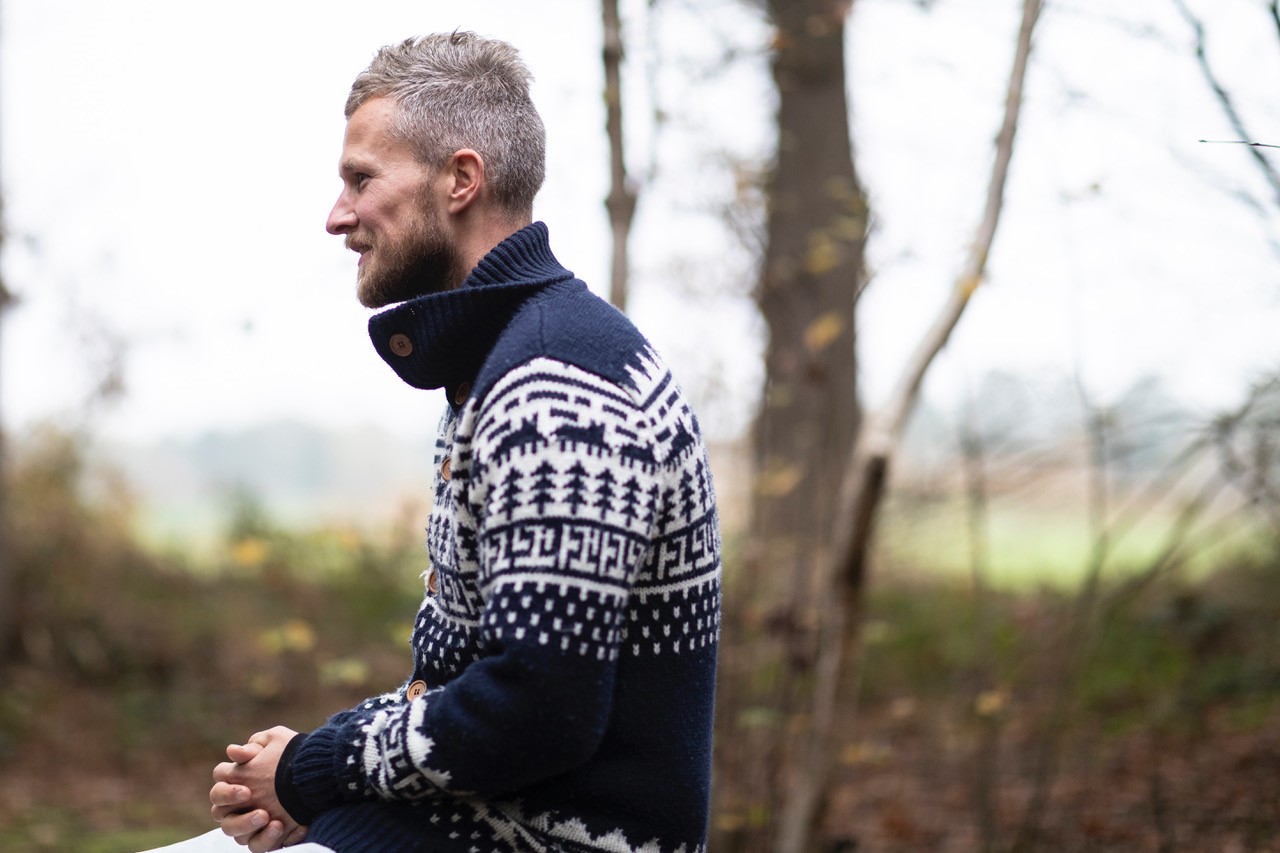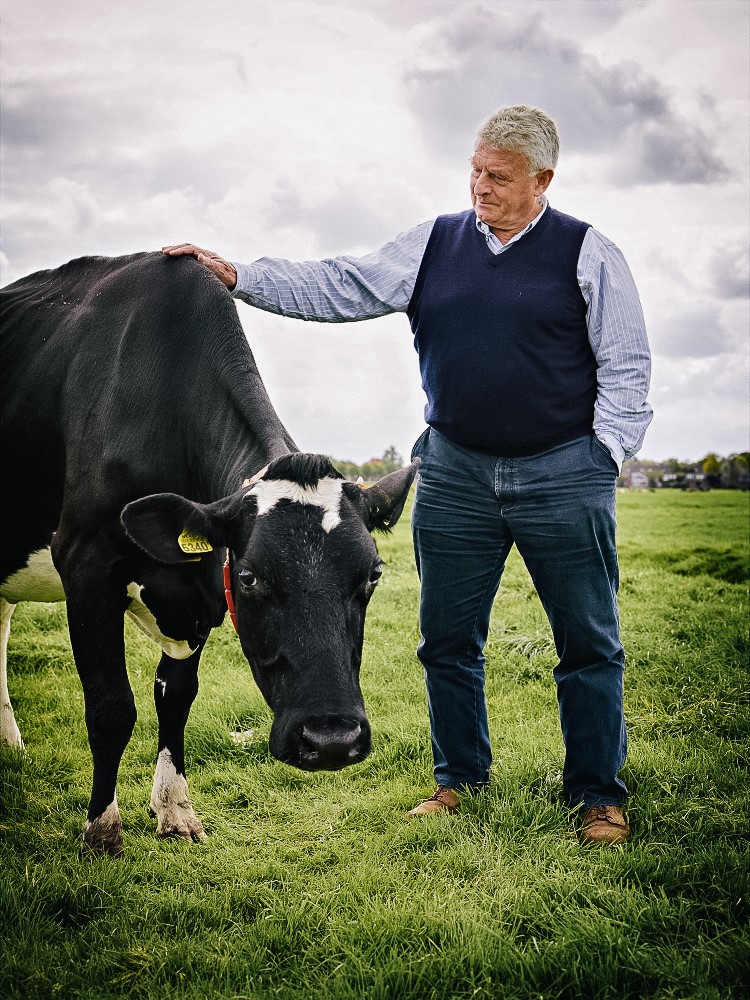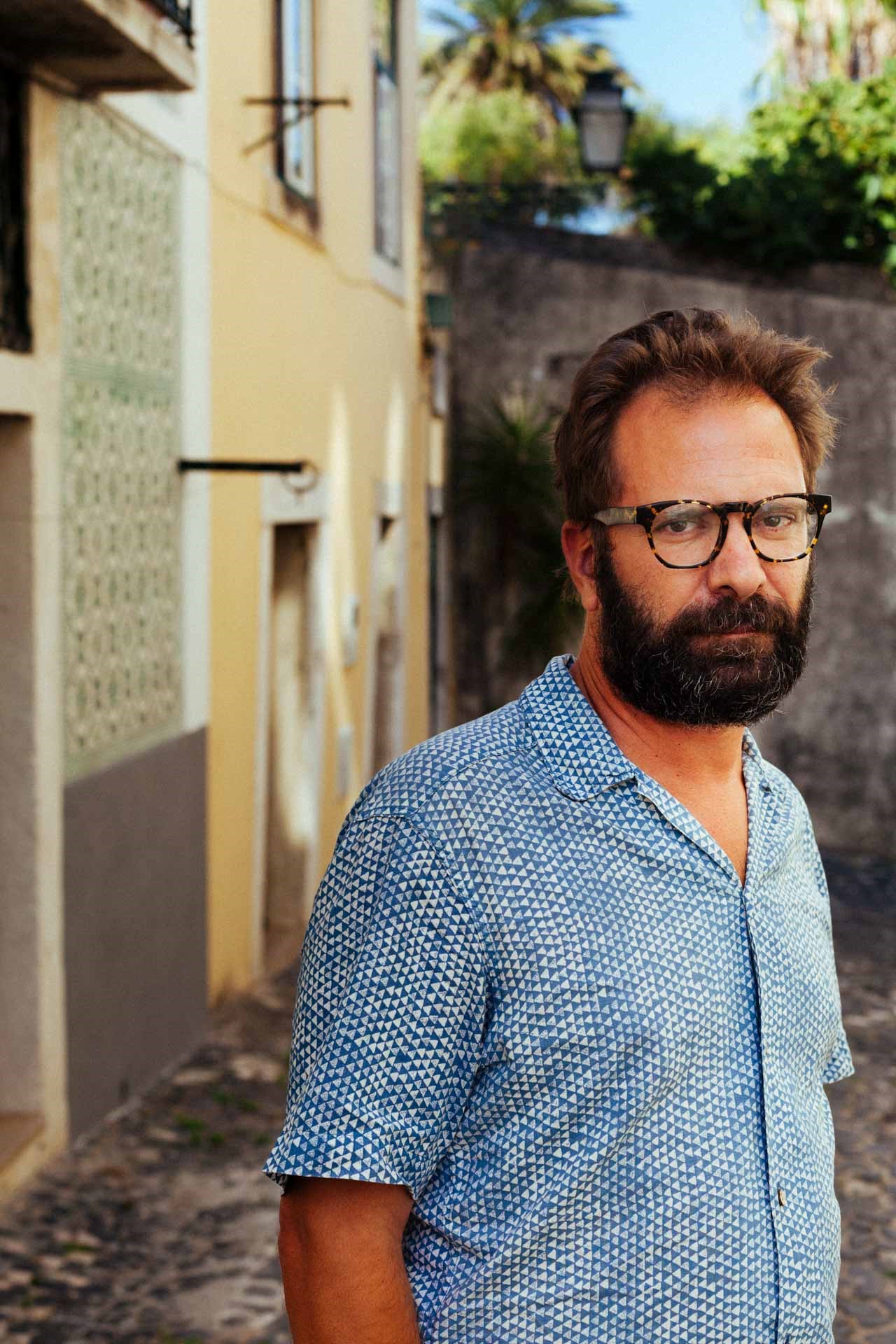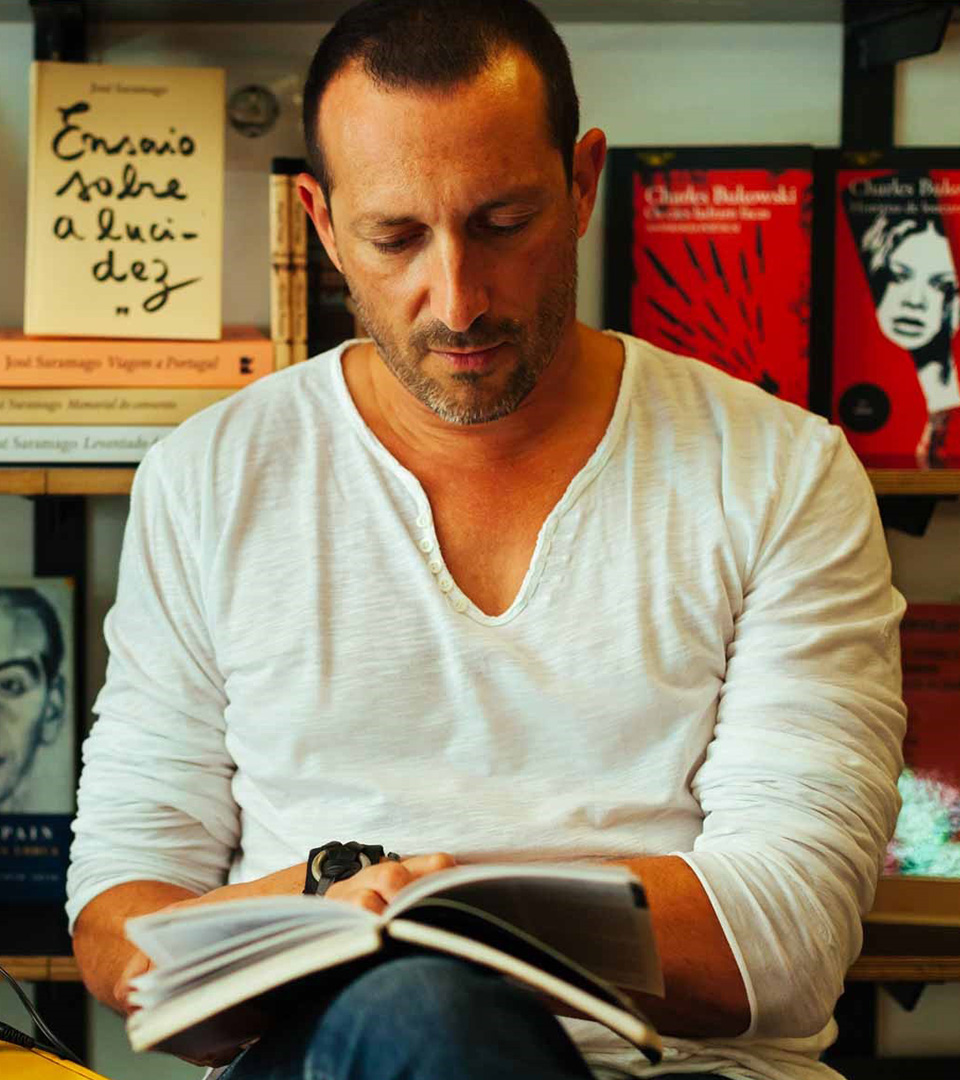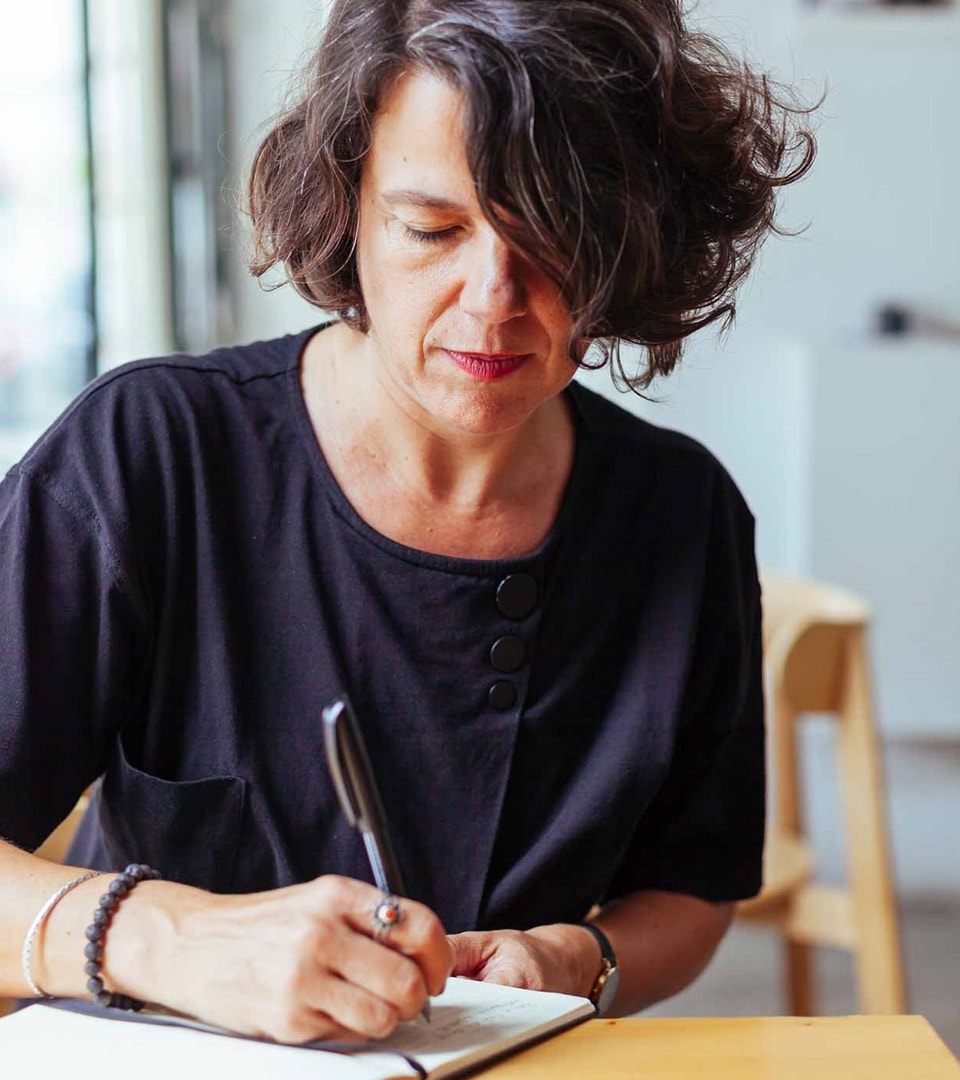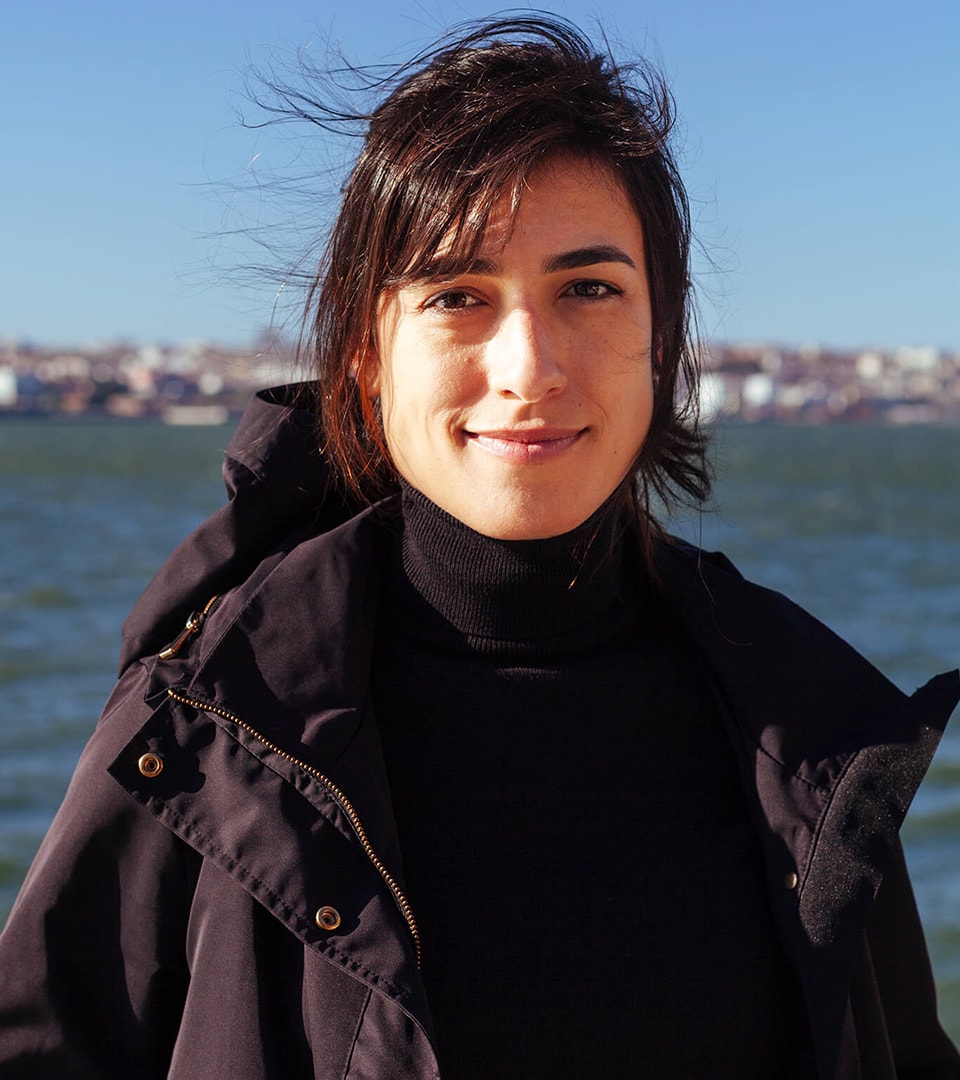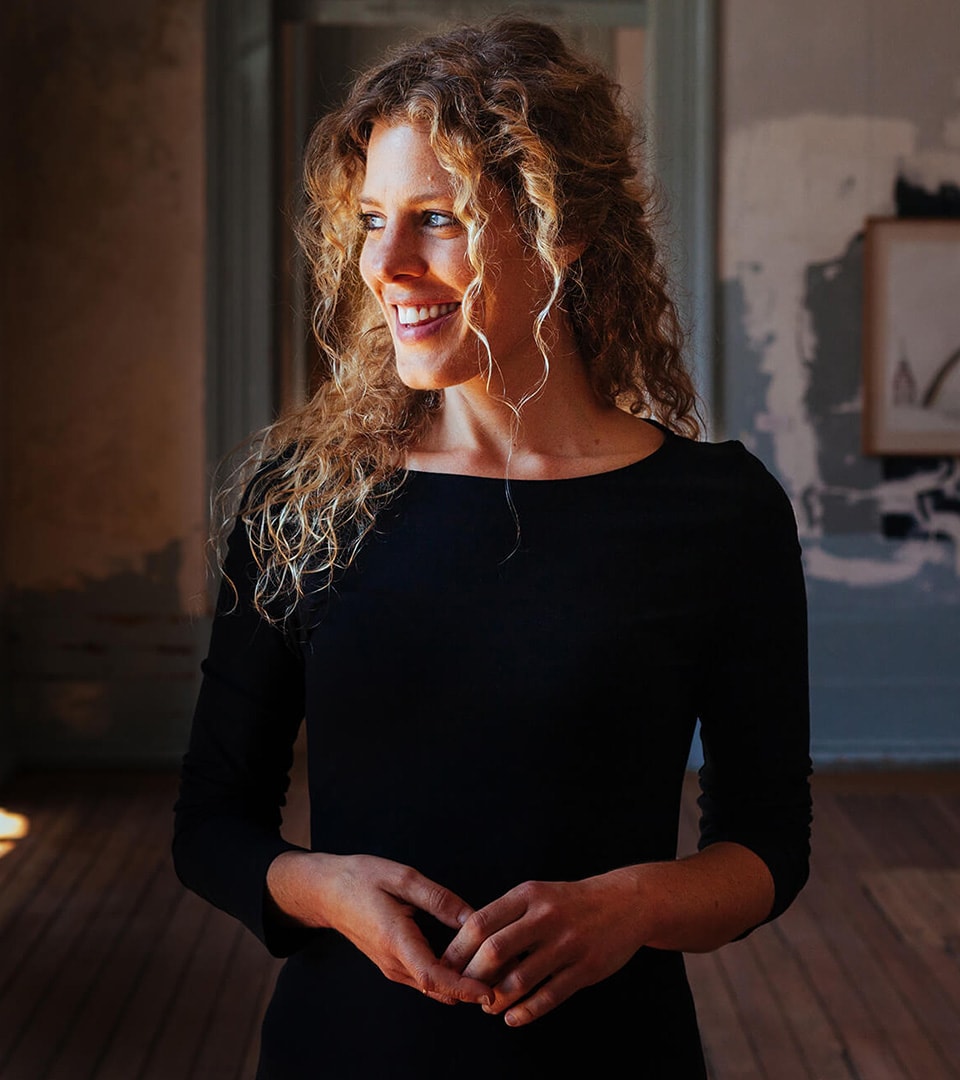Carl Honoré
Calmness is born in a hurry
Carl Honoré is Canadian, but was born in green Scotland and lives in the frenetic pace of London. He is a journalist, an author and has already written several bestsellers which gave him his worldwide recognition. In Praise of Slow is one of his biggest works, a book that introduces us to his area of expertise – the Slow Movement.
We can say that his life has – or had – everything but calmness. Besides traveling the world when working, every time he comes back home, he returns to a city that doesn’t stop. This hurried daily routine made him question his life’s pace. And it was only when he started to read bedtime stories to his kid in a rush – without really being there – that the true need for slowing down popped up. “I used to read “Snow White and the Seven Dwarfs” in a hurry: instead of being seven dwarfs, there were only three. I remember having heard about a book called “One-Minute Bedtime Stories” and thinking it was a great idea. Then I realized it was insane, that I was running through my life instead of living it”.
At that time, the restlessness caused by an addiction to an increased pace – his and everyone’s – took him on an investigation field trip around the world. When we came back, Carl brought a definite conclusion – are we who define our pace and maybe we’re not there yet. His mission to help the others – and himself – live slowly started here. Since then he became somewhat of slow movement ambassador – his TED Talks got more than 2.8 million views – and for that reason he was one of our guests in the presentation of the study made by Universidade Católica Portuguesa about the adoption and impact of slow lifestyle in Portugal – the event that marked the beginning of the Slow Forward campaign. His message will keep being heard and shared throughout this campaign, because of his experience and, mostly, his importance.
"People keep themselves busy to avoid deeper questions."
"This idea that everything needs to be quick is absurd and toxic. "
"The brain can’t work three hours in a row in the same way."
"We are burning out the planet by consuming much more than we need. And much shopping is driven by impulse decisions. Pausing allows us to resist the siren call of turbo-consumerism and to make sensible decisions about what to buy."
"Those who slow down increase their productivity: make fewer mistakes at work, become more creative, can see reality in a better way, gain perspective. "
Carl Honoré is the voice of the global Slow Movement. His first book, In Praise of Slow (2004) is – according to the Financial Times – “to the Slow Movement what Das Kapital is to communism”. We spoke with him about why living slow is important in these roaring times full of modern challenges.
It’s already been 14 years since you did your TED-talk about slowing down, which has been viewed some 3 million times. If you look at people nowadays, is the trend of ‘slowing down’ happening fast enough? I wish it would go faster. I am amazed by how quickly the slow movement is growing, but at the same time, we face enormous threats to our wellbeing and that of the planet. We’re heading into an existential crisis where turbo-capitalism and consumerism reign supreme. That’s why I think we need to move swiftly into a slow revolution; slowing down will be key to solving the epic crisis we find ourselves in.
What else can we do to solve this crisis? We need to have a complete rethink about what’s important, what we cherish, and what we want to defend. Everything from democracy to the economic system is crying out for reinvention. A slow fix doesn’t have to take a long time, it can happen quickly if we put our minds together. The clock is ticking. This is no time for dilly-dallying.
So, why does it go wrong so often? Because we treat symptoms instead of causes. Slow forward is about shifting focus to tackle the root causes of our problems rather than just react. The only way we’re ever going to find solutions to save the world is to slow down, listen and reflect – and then act swiftly.
Don’t you think the mindfulness trend nowadays creates more awareness, particularly in cities where everything goes too fast? Definitely. And we need it more than ever now because we’re bumping up against the limits of what the human body, mind, and spirit can take. The mindfulness trend is just the tip of the iceberg. Eating organic has become more and more popular, there’s a renaissance of craft and making things by hand. Or look at the return of reading books. In Britain, sales of poetry – the slowest form of literature – have soared recently and most of that is down to millennials yearning for a slower experience. To be honest, I don’t think it is just happening in cities. Everyone has a basic need to slow down sometimes, whether you live in London or the Sahara desert.
Do you think we need yoga, meditation, or other kinds of practices to become more slow? Slow is a mindset, like a chip you put in your brain. You can be Slow anywhere. For example, even though I live in London, I never feel overwhelmed because I approach every moment with a Slow spirit. I choose at what speed to go, and always try to do things as well, rather than as fast, as possible. If people are doing everything faster, and then plugging one hour of yoga into their lives, that’s not going to fix things. You have to embrace slow with a capital S. To find balance, everything has to get a little bit more mindful, not just the minutes you spend meditating. And yes, sometimes life has to move faster, but that doesn’t mean life becomes a crazy dash to the finish line. You can act quickly but still remain focused, calm and slow on the inside.
You say that when you do things slowly, everything gets better: eating, doing sport, even sex. What can you say about slow sex? That’s wonderful! When two people take the time to be together fully, to switch off their phones and enter into a deep union of body, mind, and spirit – that’s when incredible sex happens. It’s about giving things the time and attention they deserve. You’re not multitasking, you’re mono-tasking – giving it all your focus and love. It’s about being present and treating each moment as sacred. I don’t mean to sound like some sort of new-age hippie, but it’s just trying to get the most out of every experience.
Slow is about living your life rather than accelerating it. How do you cut down on the crap in your life? There are lots of small steps you can start taking right away. The keyword in that sentence is small. You don’t instantly transform from a roadrunner into the Dalai Lama. That would be like a drug addict going cold turkey. Take baby steps, such as ‘one day I am going to switch off my phone for an hour in the evening and an hour in the morning’. Try personal pilot projects to find out what works best for you. Try out slow rituals like cooking, reading poetry or whatever slows you down best. At the end of the week, reflect on what works. Once you taste a bit of slow, you won’t go back. You’ll notice the difference right away. Once you take one step then you’ll take another and so on. Go gently.
Are you scared about what’s happening in the world right now? We live in a culture of speed that gets faster and faster and faster. That’s dangerous. On the other hand, I feel like we’re moving towards a tipping point. The system we live in now is just not sustainable. I understand changing our systems’ is not easy, but we have no choice – the slow revolution has to happen. I think we’re getting to a point where things will change very quickly, otherwise, we’re pretty much doomed.
What needs to be happening to change the fast mindset? We live in a culture of ‘I don’t want to think about this’. Therefore, we need a cultural shock, a big one that makes us all sit up and say ‘we’re driving off a cliff here, we need to change direction right away’. The fires in the Amazon are still too far away for us to feel it. I fear we need something a bit closer to home, a bit more tangible. Maybe Brexit will deliver enough of a shock to make us wake up and smell the coffee. Maybe it will be the spark that pushes the financial system, which is ripe for another serious meltdown, into a new global crisis. That would cause a lot of pain, which nobody wants, but it might also spur us to make the real and meaningful changes that the world is crying out for.
What is the biggest enemy for living a slow life? The biggest obstacle is fear. Fear that others will judge you. Fear of missing out. Fear of being left behind. There is a bigger, metaphysical point here. Speed is a way of avoiding deeper questions: Who am I? What is my purpose here? How can I make the world a better place? That’s often why people keep themselves busy. During those 30 minutes of free time on the bus, you reach for your phone instead of confronting deeper thoughts. We should be aware that most fears are false, as in, once you confront them, you realize there’s nothing to be afraid of. Life passes you by when you go too fast. If you’re worried and afraid people will judge you for slowing down, it’s untrue. People will envy you because you’ll be happier, healthier, and more productive. Everything really gets better, because fear makes us illogical and unable to see the big picture. It makes us make bad decisions. Very few people slow down and then think ‘this sucks’ and go back to their fast lives again.
Are there fast things you like? The buzz of a good deadline and certainly fast sports. I also like a fast internet connection.
Some people are super aware of everything, and still like to do things quickly. Are they a product of this age or does it sit in their personality? It’s probably a bit of both. We’re all marinated in the same culture. Don’t forget that technology is designed to make us want everything faster and faster so you can’t blame people for speeding up. But we are all different. Everyone has their own natural internal metronome. And that means that some of us are more susceptible to falling into speedaholism than others. Luckily, I see that the younger generations are more interested in living balanced lives, saving the planet, being of service, having strong relationships and questioning the socio-economic system. This makes me feel optimistic about the future.
Can you say that living fast is a disease of the western, privileged society? I think it has gone global. Living fast has been put on a pedestal all over the world, and we all feel under pressure to conform, to keep up. But this paradigm is now looking very frayed around the edges, and people are rejecting it in the West and beyond. When privileged Westerners trave to slower countries we don’t feel sorry for the people there, we envy them! If we then ask ourselves, ‘what do we want the modern world to look like?’ Then it gets easier to identify good slow and good fast, bad slow and bad fast and get rid of the things that don’t serve us. Of course, every country is different and will have to come up with its own version of Slow.
You must have had many interviews. Is there something people never ask you but you’d really like to share? I’d like to say something about aging and our attitude towards it. With longer life expectancy, there’s less rush. You don’t have to design the perfect life and achieve all your goals by 30. It’s never too late to have a new dream. Female fertility has a deadline, of course, but even so, we’re not having families later than ever before. We need to rethink workplace culture to make having children a very different experience from what it is now. Women shouldn’t have to choose between a family and a career.
Carl Honoré is Canadian, but was born in green Scotland and lives in the frenetic pace of London. He is a journalist, an author and has already written several bestsellers which gave him his worldwide recognition. In Praise of Slow is one of his biggest works, a book that introduces us to his area of expertise – the Slow Movement.
We can say that his life has – or had – everything but calmness. Besides traveling the world when working, every time he comes back home, he returns to a city that doesn’t stop. This hurried daily routine made him question his life’s pace. And it was only when he started to read bedtime stories to his kid in a rush – without really being there – that the true need for slowing down popped up. “I used to read “Snow White and the Seven Dwarfs” in a hurry: instead of being seven dwarfs, there were only three. I remember having heard about a book called “One-Minute Bedtime Stories” and thinking it was a great idea. Then I realized it was insane, that I was running through my life instead of living it”.
At that time, the restlessness caused by an addiction to an increased pace – his and everyone’s – took him on an investigation field trip around the world. When we came back, Carl brought a definite conclusion – are we who define our pace and maybe we’re not there yet. His mission to help the others – and himself – live slowly started here. Since then he became somewhat of slow movement ambassador – his TED Talks got more than 2.8 million views – and for that reason he was one of our guests in the presentation of the study made by Universidade Católica Portuguesa about the adoption and impact of slow lifestyle in Portugal – the event that marked the beginning of the Slow Forward campaign. His message will keep being heard and shared throughout this campaign, because of his experience and, mostly, his importance.
"People keep themselves busy to avoid deeper questions."
"This idea that everything needs to be quick is absurd and toxic. "
"The brain can’t work three hours in a row in the same way."
"We are burning out the planet by consuming much more than we need. And much shopping is driven by impulse decisions. Pausing allows us to resist the siren call of turbo-consumerism and to make sensible decisions about what to buy."
"Those who slow down increase their productivity: make fewer mistakes at work, become more creative, can see reality in a better way, gain perspective. "
Carl Honoré is the voice of the global Slow Movement. His first book, In Praise of Slow (2004) is – according to the Financial Times – “to the Slow Movement what Das Kapital is to communism”. We spoke with him about why living slow is important in these roaring times full of modern challenges.
It’s already been 14 years since you did your TED-talk about slowing down, which has been viewed some 3 million times. If you look at people nowadays, is the trend of ‘slowing down’ happening fast enough? I wish it would go faster. I am amazed by how quickly the slow movement is growing, but at the same time, we face enormous threats to our wellbeing and that of the planet. We’re heading into an existential crisis where turbo-capitalism and consumerism reign supreme. That’s why I think we need to move swiftly into a slow revolution; slowing down will be key to solving the epic crisis we find ourselves in.
What else can we do to solve this crisis? We need to have a complete rethink about what’s important, what we cherish, and what we want to defend. Everything from democracy to the economic system is crying out for reinvention. A slow fix doesn’t have to take a long time, it can happen quickly if we put our minds together. The clock is ticking. This is no time for dilly-dallying.
So, why does it go wrong so often? Because we treat symptoms instead of causes. Slow forward is about shifting focus to tackle the root causes of our problems rather than just react. The only way we’re ever going to find solutions to save the world is to slow down, listen and reflect – and then act swiftly.
Don’t you think the mindfulness trend nowadays creates more awareness, particularly in cities where everything goes too fast? Definitely. And we need it more than ever now because we’re bumping up against the limits of what the human body, mind, and spirit can take. The mindfulness trend is just the tip of the iceberg. Eating organic has become more and more popular, there’s a renaissance of craft and making things by hand. Or look at the return of reading books. In Britain, sales of poetry – the slowest form of literature – have soared recently and most of that is down to millennials yearning for a slower experience. To be honest, I don’t think it is just happening in cities. Everyone has a basic need to slow down sometimes, whether you live in London or the Sahara desert.
Do you think we need yoga, meditation, or other kinds of practices to become more slow? Slow is a mindset, like a chip you put in your brain. You can be Slow anywhere. For example, even though I live in London, I never feel overwhelmed because I approach every moment with a Slow spirit. I choose at what speed to go, and always try to do things as well, rather than as fast, as possible. If people are doing everything faster, and then plugging one hour of yoga into their lives, that’s not going to fix things. You have to embrace slow with a capital S. To find balance, everything has to get a little bit more mindful, not just the minutes you spend meditating. And yes, sometimes life has to move faster, but that doesn’t mean life becomes a crazy dash to the finish line. You can act quickly but still remain focused, calm and slow on the inside.
You say that when you do things slowly, everything gets better: eating, doing sport, even sex. What can you say about slow sex? That’s wonderful! When two people take the time to be together fully, to switch off their phones and enter into a deep union of body, mind, and spirit – that’s when incredible sex happens. It’s about giving things the time and attention they deserve. You’re not multitasking, you’re mono-tasking – giving it all your focus and love. It’s about being present and treating each moment as sacred. I don’t mean to sound like some sort of new-age hippie, but it’s just trying to get the most out of every experience.
Slow is about living your life rather than accelerating it. How do you cut down on the crap in your life? There are lots of small steps you can start taking right away. The keyword in that sentence is small. You don’t instantly transform from a roadrunner into the Dalai Lama. That would be like a drug addict going cold turkey. Take baby steps, such as ‘one day I am going to switch off my phone for an hour in the evening and an hour in the morning’. Try personal pilot projects to find out what works best for you. Try out slow rituals like cooking, reading poetry or whatever slows you down best. At the end of the week, reflect on what works. Once you taste a bit of slow, you won’t go back. You’ll notice the difference right away. Once you take one step then you’ll take another and so on. Go gently.
Are you scared about what’s happening in the world right now? We live in a culture of speed that gets faster and faster and faster. That’s dangerous. On the other hand, I feel like we’re moving towards a tipping point. The system we live in now is just not sustainable. I understand changing our systems’ is not easy, but we have no choice – the slow revolution has to happen. I think we’re getting to a point where things will change very quickly, otherwise, we’re pretty much doomed.
What needs to be happening to change the fast mindset? We live in a culture of ‘I don’t want to think about this’. Therefore, we need a cultural shock, a big one that makes us all sit up and say ‘we’re driving off a cliff here, we need to change direction right away’. The fires in the Amazon are still too far away for us to feel it. I fear we need something a bit closer to home, a bit more tangible. Maybe Brexit will deliver enough of a shock to make us wake up and smell the coffee. Maybe it will be the spark that pushes the financial system, which is ripe for another serious meltdown, into a new global crisis. That would cause a lot of pain, which nobody wants, but it might also spur us to make the real and meaningful changes that the world is crying out for.
What is the biggest enemy for living a slow life? The biggest obstacle is fear. Fear that others will judge you. Fear of missing out. Fear of being left behind. There is a bigger, metaphysical point here. Speed is a way of avoiding deeper questions: Who am I? What is my purpose here? How can I make the world a better place? That’s often why people keep themselves busy. During those 30 minutes of free time on the bus, you reach for your phone instead of confronting deeper thoughts. We should be aware that most fears are false, as in, once you confront them, you realize there’s nothing to be afraid of. Life passes you by when you go too fast. If you’re worried and afraid people will judge you for slowing down, it’s untrue. People will envy you because you’ll be happier, healthier, and more productive. Everything really gets better, because fear makes us illogical and unable to see the big picture. It makes us make bad decisions. Very few people slow down and then think ‘this sucks’ and go back to their fast lives again.
Are there fast things you like? The buzz of a good deadline and certainly fast sports. I also like a fast internet connection.
Some people are super aware of everything, and still like to do things quickly. Are they a product of this age or does it sit in their personality? It’s probably a bit of both. We’re all marinated in the same culture. Don’t forget that technology is designed to make us want everything faster and faster so you can’t blame people for speeding up. But we are all different. Everyone has their own natural internal metronome. And that means that some of us are more susceptible to falling into speedaholism than others. Luckily, I see that the younger generations are more interested in living balanced lives, saving the planet, being of service, having strong relationships and questioning the socio-economic system. This makes me feel optimistic about the future.
Can you say that living fast is a disease of the western, privileged society? I think it has gone global. Living fast has been put on a pedestal all over the world, and we all feel under pressure to conform, to keep up. But this paradigm is now looking very frayed around the edges, and people are rejecting it in the West and beyond. When privileged Westerners trave to slower countries we don’t feel sorry for the people there, we envy them! If we then ask ourselves, ‘what do we want the modern world to look like?’ Then it gets easier to identify good slow and good fast, bad slow and bad fast and get rid of the things that don’t serve us. Of course, every country is different and will have to come up with its own version of Slow.
You must have had many interviews. Is there something people never ask you but you’d really like to share? I’d like to say something about aging and our attitude towards it. With longer life expectancy, there’s less rush. You don’t have to design the perfect life and achieve all your goals by 30. It’s never too late to have a new dream. Female fertility has a deadline, of course, but even so, we’re not having families later than ever before. We need to rethink workplace culture to make having children a very different experience from what it is now. Women shouldn’t have to choose between a family and a career.
Carl Honoré
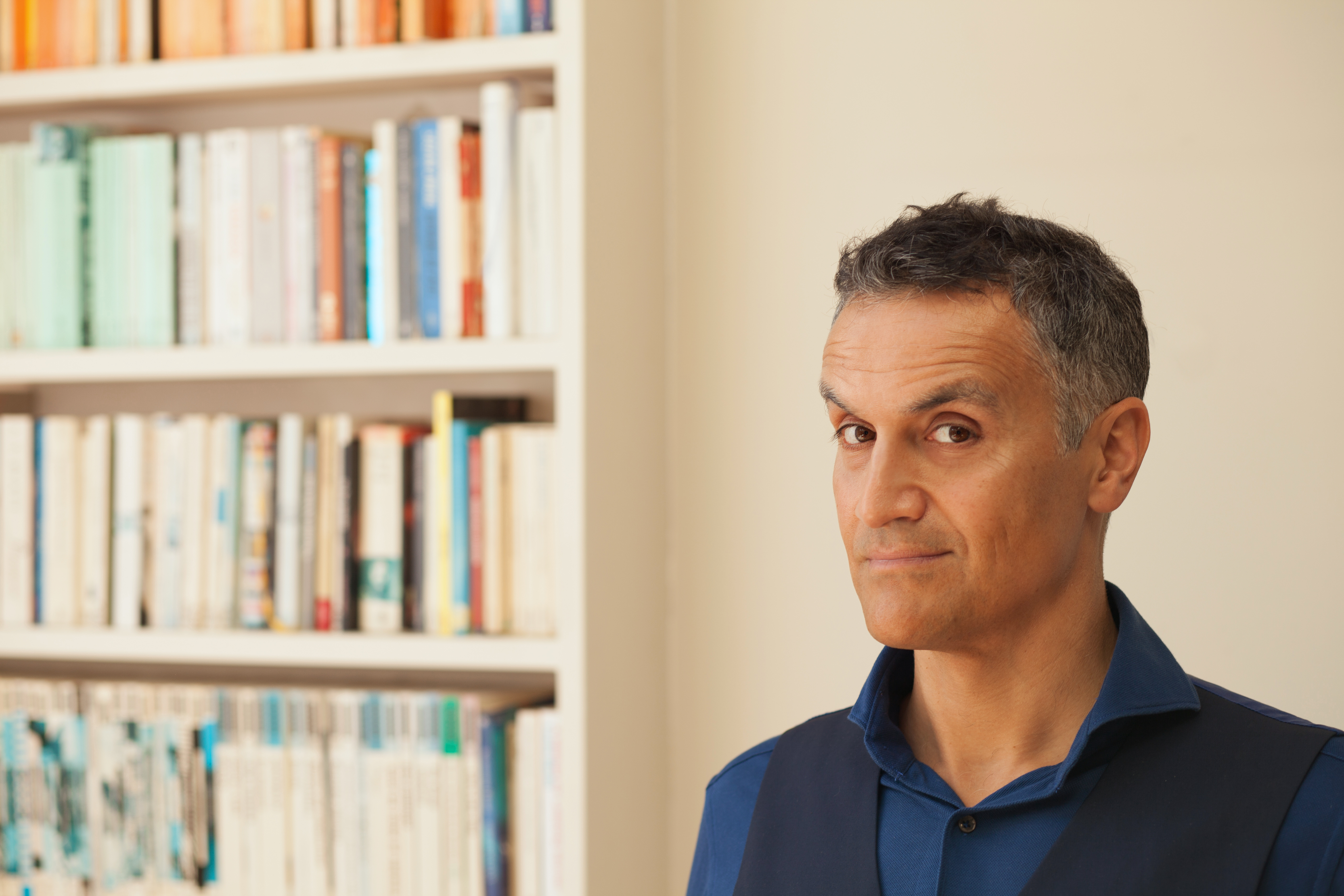
Calmness is born in a hurry
Carl Honoré is Canadian, but was born in green Scotland and lives in the frenetic pace of London. He is a journalist, an author and has already written several bestsellers which gave him his worldwide recognition. In Praise of Slow is one of his biggest works, a book that introduces us to his area of expertise – the Slow Movement.
We can say that his life has – or had – everything but calmness. Besides traveling the world when working, every time he comes back home, he returns to a city that doesn’t stop. This hurried daily routine made him question his life’s pace. And it was only when he started to read bedtime stories to his kid in a rush – without really being there – that the true need for slowing down popped up. “I used to read “Snow White and the Seven Dwarfs” in a hurry: instead of being seven dwarfs, there were only three. I remember having heard about a book called “One-Minute Bedtime Stories” and thinking it was a great idea. Then I realized it was insane, that I was running through my life instead of living it”.
At that time, the restlessness caused by an addiction to an increased pace – his and everyone’s – took him on an investigation field trip around the world. When we came back, Carl brought a definite conclusion – are we who define our pace and maybe we’re not there yet. His mission to help the others – and himself – live slowly started here. Since then he became somewhat of slow movement ambassador – his TED Talks got more than 2.8 million views – and for that reason he was one of our guests in the presentation of the study made by Universidade Católica Portuguesa about the adoption and impact of slow lifestyle in Portugal – the event that marked the beginning of the Slow Forward campaign. His message will keep being heard and shared throughout this campaign, because of his experience and, mostly, his importance.
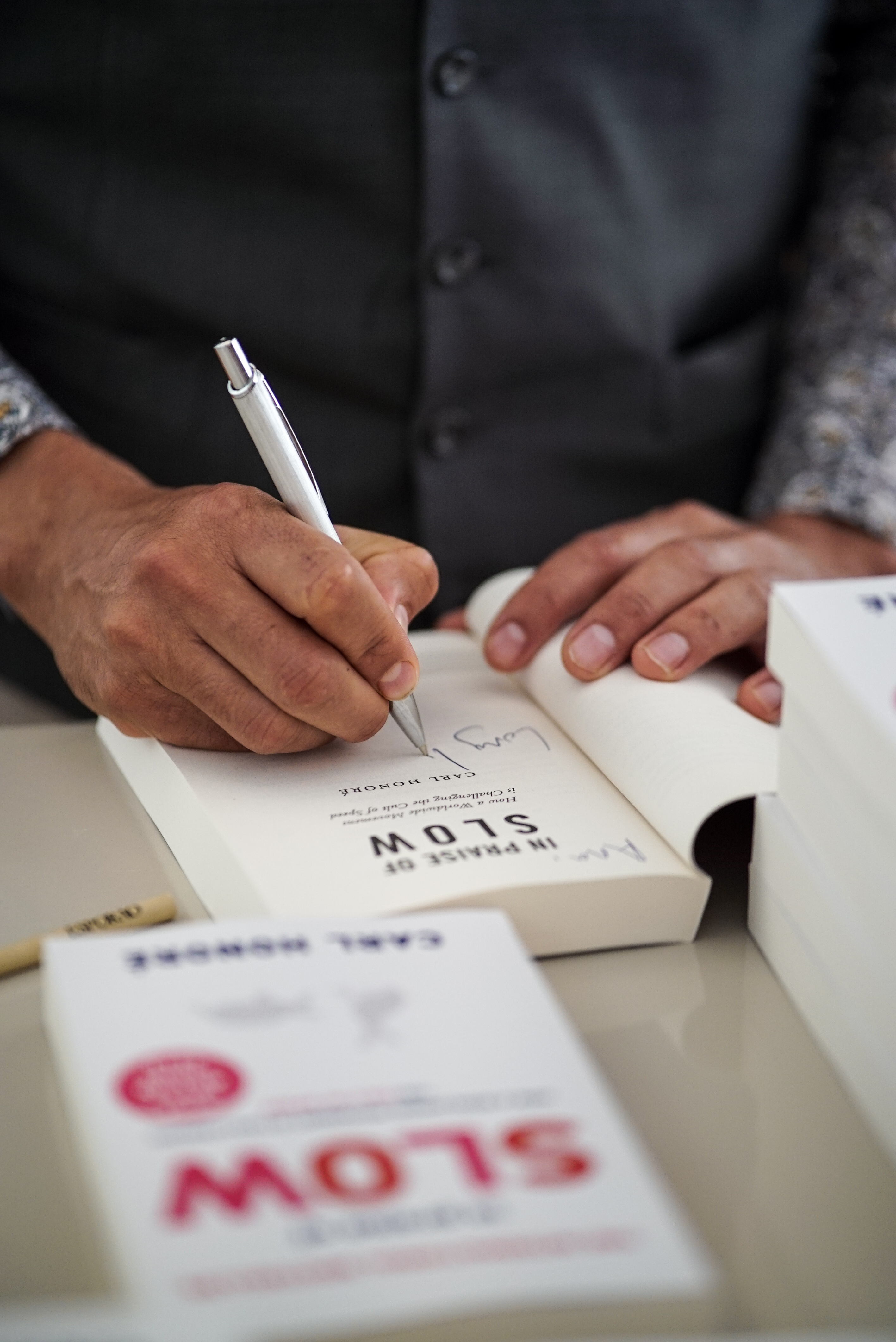
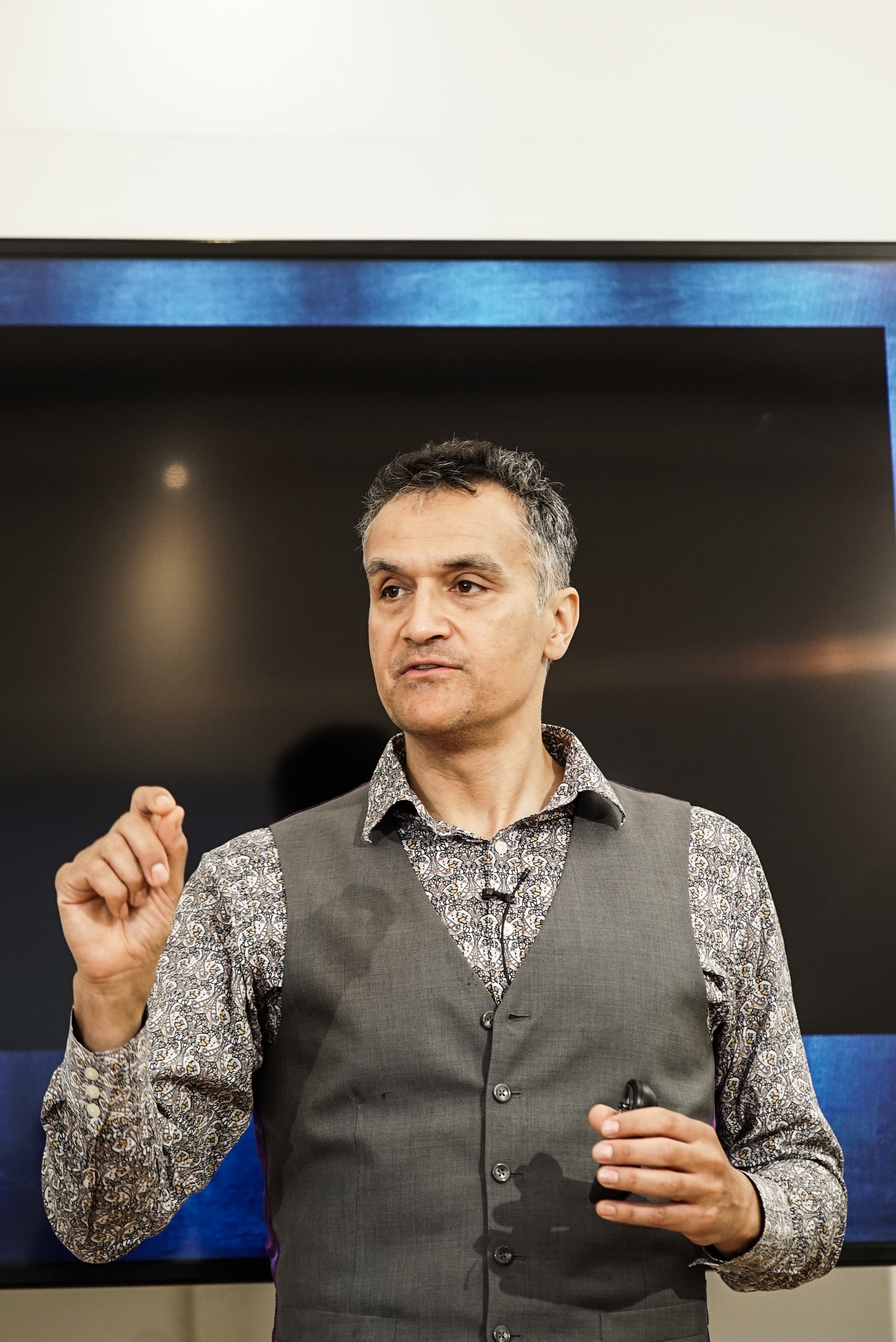
"People keep themselves busy to avoid deeper questions."
"This idea that everything needs to be quick is absurd and toxic. "
"The brain can’t work three hours in a row in the same way."
"We are burning out the planet by consuming much more than we need. And much shopping is driven by impulse decisions. Pausing allows us to resist the siren call of turbo-consumerism and to make sensible decisions about what to buy."
"Those who slow down increase their productivity: make fewer mistakes at work, become more creative, can see reality in a better way, gain perspective. "
Carl Honoré is the voice of the global Slow Movement. His first book, In Praise of Slow (2004) is – according to the Financial Times – “to the Slow Movement what Das Kapital is to communism”. We spoke with him about why living slow is important in these roaring times full of modern challenges.
It’s already been 14 years since you did your TED-talk about slowing down, which has been viewed some 3 million times. If you look at people nowadays, is the trend of ‘slowing down’ happening fast enough? I wish it would go faster. I am amazed by how quickly the slow movement is growing, but at the same time, we face enormous threats to our wellbeing and that of the planet. We’re heading into an existential crisis where turbo-capitalism and consumerism reign supreme. That’s why I think we need to move swiftly into a slow revolution; slowing down will be key to solving the epic crisis we find ourselves in.
What else can we do to solve this crisis? We need to have a complete rethink about what’s important, what we cherish, and what we want to defend. Everything from democracy to the economic system is crying out for reinvention. A slow fix doesn’t have to take a long time, it can happen quickly if we put our minds together. The clock is ticking. This is no time for dilly-dallying.
So, why does it go wrong so often? Because we treat symptoms instead of causes. Slow forward is about shifting focus to tackle the root causes of our problems rather than just react. The only way we’re ever going to find solutions to save the world is to slow down, listen and reflect – and then act swiftly.
